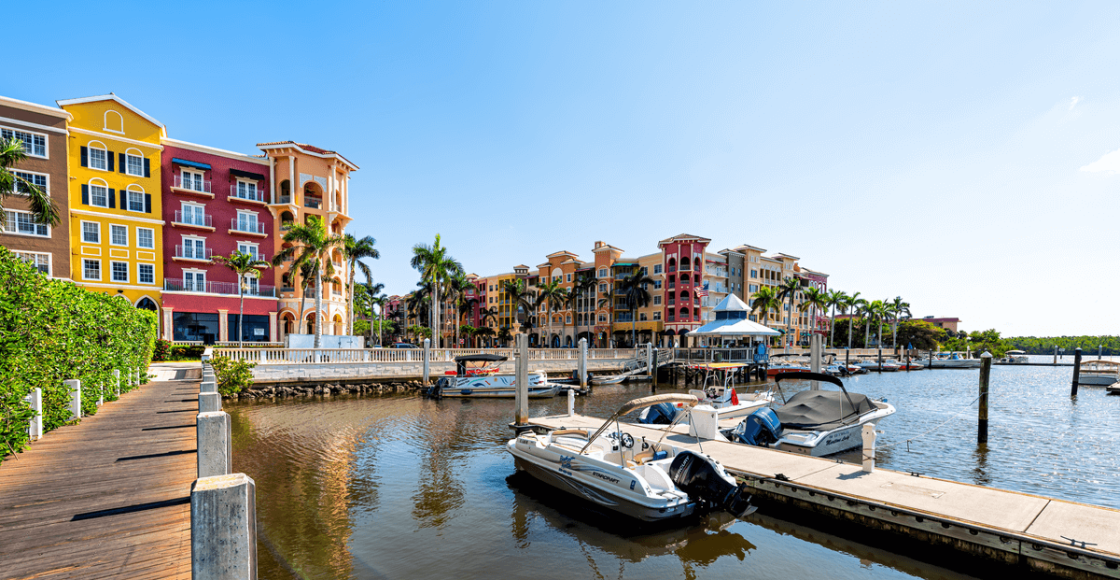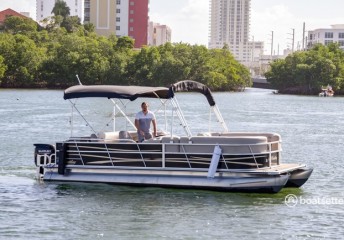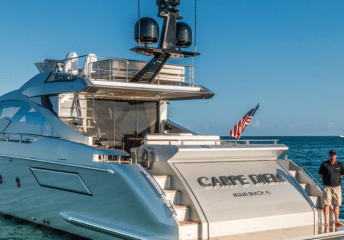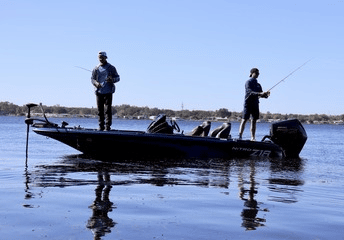How Do I Start My Own Boat Charter Business?
Last Updated on May 19, 2022 by Boatsetter Team
Have you ever thought about starting a charter business? As a boat owner, you might have found that the costs of owning a boat can add up quickly. You might not have quite as much time as you used to for boating now, so it might seem that your boat goes unused for much of the year. Likewise, there’s been a lot of talk in the last year about the “Great Resignation”—people quitting their jobs out of a desire for something better. Fascinatingly, many Americans have turned to entrepreneurship.
For many, starting their own business has meant joining the rapidly growing sharing economy (think the Airbnb, Uber, and Turo’s of the world). Believe it or not, you can do the same thing by listing your vessel as a boat charter, or even just as a basic boat rental. So, how do you get started? Easy—you can start your own boat, yacht or fishing charter business right here on Boatsetter.
Before we dive in, let’s take a closer look at the various types of charters you may be interested in running, and some tips for success as you get started.
How to Start a Boat Charter Business
- Determine the type of charter you’re interested in running—bareboat boat, captained, fishing, or luxury yacht charters.
- Use a peer-to-peer boat rental platform to list your boat(s) or fleet.
- Easy secure peer-to-peer or commercial boat insurance, for peace-of-mind to protect yourself and your boats from potential damages and liability.
- Create a listing for your boat(s) or charter(s), including price, location, images, description, and other relevant details.
- Manage your charter business (bookings, schedule, payment, reviews) directly on the peer-to-peer rental platform.
Get Started Now: Sign Up to List Your Boat or Charter for Free

Types of Boat Charters
Firstly, boat charter is another way of saying “boat rental.” As the owner, you make your vessel available for other cruisers to book. They can do so for as little as a few hours. Additionally, you’re typically providing just the boat. Therefore, the cruisers are responsible for navigation and provisioning—although there are exceptions.
For instance, with some charter boat businesses, boat owners provide a customized itinerary and necessary provisions. They may provide a professional captain, too—these are called captained charters. This is especially helpful if the interested parties are unfamiliar with the waters. It’s also important for novice boaters. In fact, it’s common for newcomers to use boat and yacht charter as a way to “try before you buy.”
Two types of charter boat businesses that definitely include captains and custom itineraries are fishing charters and luxury yacht charters.
- Fishing charters are exactly what they sound like: a few hours on the water pursuing different fish, with an expert guide. The boat owner supplies the fishing gear, along with safety equipment, of course, and niceties like bottled water.
- Luxury yacht charters, meanwhile, offer more white-glove service. They’re typically up to a week in a highly desirable location, ranging from the Bahamas to the Caribbean and to the Mediterranean. The yachts come with full professional crews, too, like a chef, stewardesses, and deckhands. All meals are included, with menus tailored to your tastes. The same is true for activities, like using watertoys.
Finally, bareboat charters are when cruisers rent or lease out a vessel for a certain period with time, with no crew or provisions provided.

Advice & Tips for Success for Starting Your Own Boat Charter Business
Use a Peer-to-Peer Boat Rental Marketplace to List, Manage, and Advertise Your Fleet
So, what exactly does starting a charter boat business entail? First, you should use a peer-to-peer rental platform, like Boatsetter!
Here’s how it works… Our team walk you through the process in getting started, and we’ll provide support each and every step of the way—from sign up, to listing your boat, connecting with potential renters, managing your boat’s schedule, and of course, getting paid!
Learn more about the process by visiting Why List with Boatsetter.
Understanding Insurance For a Boat Rental Business
Since your boat is a valuable asset, you need to be sure that it is safe if you decide to offer it as a charter rental. There are good reasons that you need good boat insurance, such as protecting yourself and your boat from expensive damage. Luckily, Boatsetter is the only peer-to-peer marketplace in the US that offers peer-to-peer boat insurance, thanks to our exclusive partnership with GEICO/BoatUS.
This Peer-to-Peer Boat Rental Policy is the primary policy that covers you during the Boatsetter rental period and it doesn’t require you to change anything that you already have with your regular boat policy. Each Boatsetter rental covered under this policy comes with significant liability coverage, and is ideal for owners who are interested in chartering because the insurance costs are very low.
Create Your Detailed Listing to Ensure You Stand Out from the Rest
Once you have adequate insurance, you’ll still need to find people who want to rent your boat. Here are some really easy ways to make your boat more attractive as a charter rental when listing on Boatsetter (take a quick look at this list too).
Check Out Your Competition
Be sure to browse how owners of boats similar to yours list them. How do they describe the amenities? What types of photos do they include? What rates do they charge? Use these to determine the best way to show-and-tell your boat, as well as the experience cruisers can enjoy.
Include Great Images—and a Strong Description—and Keep Them Updated Regularly
In general, when listing your boat as a charter rental, keep your listing as current as possible by updating your images constantly.
Weigh your options for how and when to offer your boat for charter. Do you want to provide a few hours on weekdays during spring, summer, and fall in your home waters? Are you open to both weekdays and weekends during peak season? Or, do you chase the sun and therefore want to offer charters in different states at different times of the year?
Always Provide Good Customer Service
Always respond as quickly as you can to queries about your charter rental. Make sure you obtain reviews from previous satisfied customers. Finally, make sure your price is competitive and comparable to the cost of other similar charter rentals.
If you follow those suggestions, it should be easy to list your boat as a charter rental. Once you’ve signed up your boat on Boatsetter and successfully listed it as a charter rental a few times, you might want to invest in a few more boats. Luckily, listing your boat on Boatsetter is a seamless process. Our expert team is available to walk you through any questions you might have.
The Boatsetter Difference
Since you’re already here at Boatsetter, you may know that its peer-to-peer rental platform makes starting a boat charter business pretty simple. In fact, Boatsetter’s co-founder, Jaclyn Baumgarten, created the company because she believed that boats should be as accessible as Airbnb rental properties. Simultaneously, she believed that boat owners should be able to earn money to offset upkeep costs.
While Boatsetter lets you respond to booking requests and messages, it makes your listings—and time—more workable in other ways. Boat managers are at your disposal to handle these tasks, plus update your calendar and edit listings.
Of primary importance, though, Boatsetter is the only insured peer-to-peer boat rental platform in the United States. GEICO Marine Insurance Company underwrites coverage, created from scratch as a standalone policy covering the period of time the boat is under rental. And, for even more safety and peace of mind, on-the-water assistance comes via TowBoatUS.
All that’s left to do now is to list and lease—and love how you can earn.
List Your Boat on Boatsetter Today
Editor’s Note: This article was originally published in Sept. 2020 and updated in Feb. 2022.

Boatsetter empowers people to explore with confidence by showing them a world of possibility on the water. Rent a boat, list your boat, or become a Boatsetter captain today.










